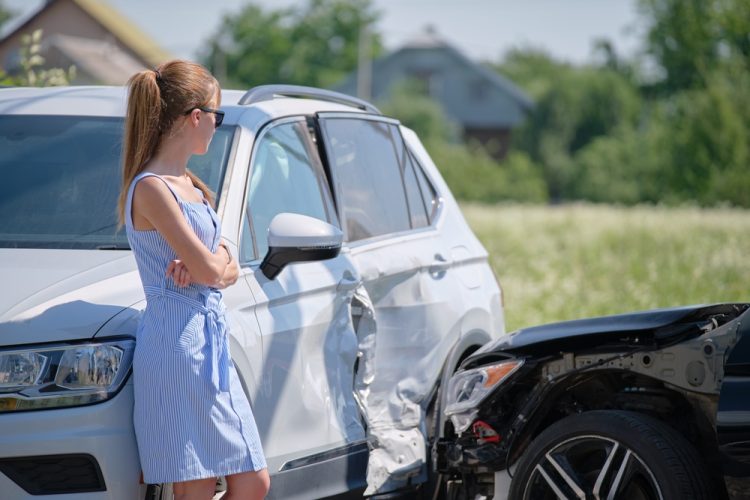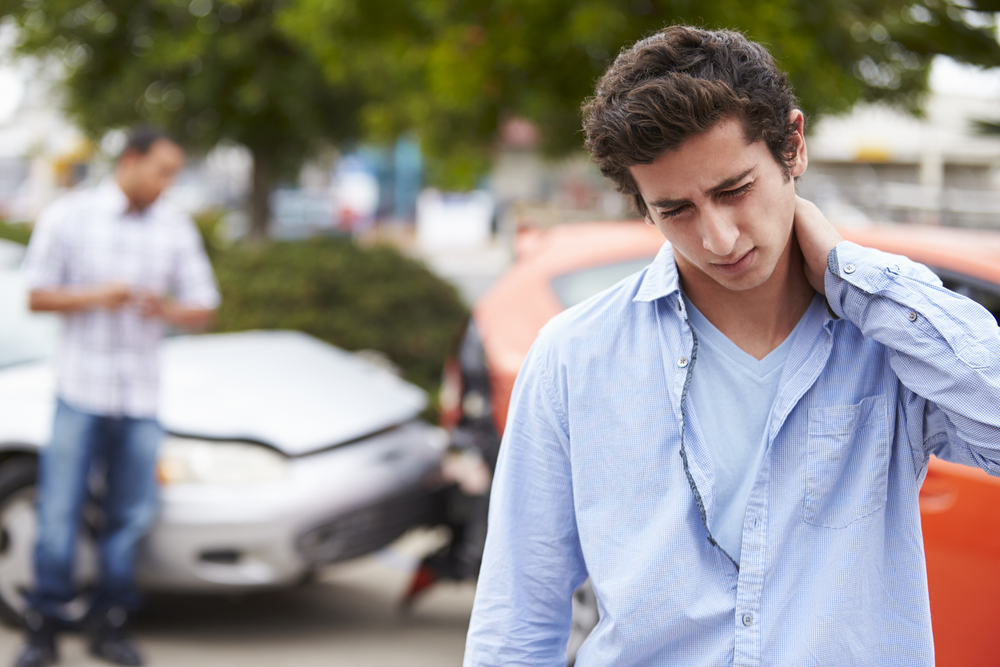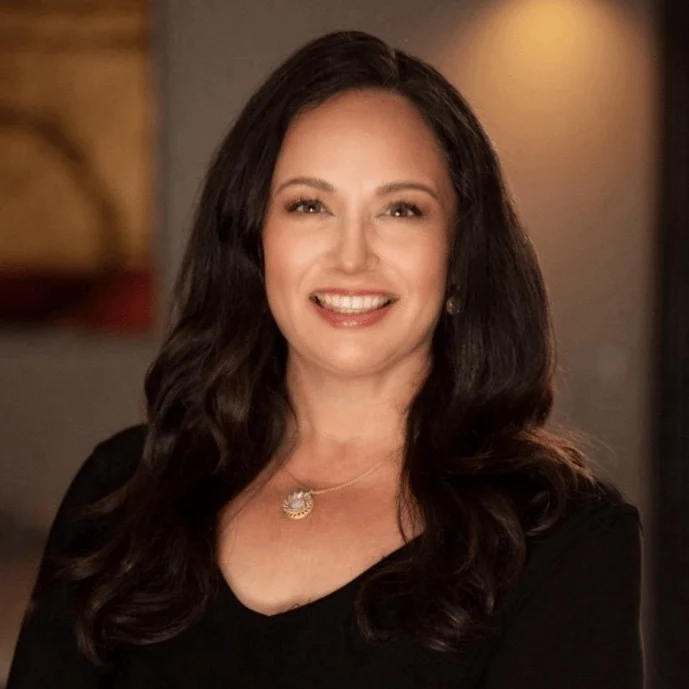
You may have heard the terms “at-fault” and no-fault” before and wondered what they mean in terms of your car insurance. If you live in Georgia, you live in an at-fault state, which means whoever causes an accident is responsible for the injuries and damages of other parties.
Georgia law uses the modified comparative fault rule, which sounds like a lot of legal jargon, but it boils down to this: the at-fault driver’s insurance company is responsible for helping to pay for the accident victims medical costs and repair bills. If there is fault to be shared between two or more of the drivers involved, the insurance companies, the law or the courts determine how much of the blame each driver gets and this decision may affect your responsibility.
That’s why you are required to carry liability insurance in Georgia: to help pay for any damage you cause while driving. If you are the victim in a car crash, the other driver’s insurance helps pay for your bills.
What is Tort Liability?
It’s just a legal way to say auto insurance is designed to pay for the damages and medical bills an insured drivers causes if they are at fault for car crash. An at-fault system means the insurance company will pay for damages and medical bills sustained by other parties – up to the limits of their policyholder’s coverage.
A tort state is the opposite of a no-fault state, where insurance companies pay for the damages sustained by their policyholder, no matter who is at fault in an accident. In a tort state, people can take their grievances to the courts in the form of a personal injury lawsuit. In no-fault states, people are very limited in what they can sue for after an accident.
How is Fault Determined in Georgia?
Your insurance company and the courts use police reports, accident scene evidence and witness statements, if there are any, to determine fault for accidents in Georgia.
In a modified comparative fault state such as Georgia, your damages can be reduced or even eliminated if you are found to a contributor to the accident. For example, if you are driving through an intersection and get hit by a driver who runs the red light from the other direction, you would think the other driver was fully at fault. But hold up. If you were speeding (even a little), you may be found to share some of the blame.
The other driver may be assigned 90% of the fault, where you receive 10% of the blame. Your damages may be reduced by 10%.
At-Fault Parties and Their Responsibilities in Georgia
When you are injured and your car is damaged, you just want someone to pay up. If you are the victim in this situation, you have the right to file a personal injury claim for compensation against the other driver’s insurance company for damages, including property damages and medical expenses.
If you aren’t getting the amount you want, you may hire an Atlanta car accident lawyer (if this happens there) and take your case to court.
How Adjusters Investigate and Make Determinations
If you are filing a claim with an insurance company, the adjuster will need certain pieces of information from you. They will visit the scene of the accident to make a determination of possible contributing factors (such as a stop sign covered by a tree or bush) and circumstances (was it raining?). If possible, they will need to inspect your car.
They’ll need witness statements, your medical bills, any physical evidence and any photos you (or someone) took at the scene. Be sure you get the contact information of the other driver.
If you find yourself the victim in a car crash caused by another person and their insurer wants to negotiate with you for a settlement, you have options. You have the right to request a neutral location and a set time limit for the meeting. You also have the right to consult a car accident attorney (or any attorney).

Consequences of Fault and No-Fault Insurance
So, the answer to the question: is Georgia a no fault state for auto insurance? is a solid no. Your liability insurance is designed to help pay for others if you cause an auto accident. It will never pay for your damages and injuries. And, if you are an at-fault driver, anything over your policy limits, plus your own expenses, will come out of your pocket if all you have is the state-required minimum liability. Georgia is a state with a fault-based insurance system.
Remember, if you loan your car to a friend and they cause an accident, your insurance will be on the hook.
The Impact of Fault on Insurance Premiums in Georgia
Car accidents can increase your insurance premium, especially if you are the one responsible for the accident. Your insurer will not look favorably on claims filed against them by people who’ve been hurt or lost property in an accident you caused.
Expect your rates to increase – at least for 3-5 years. If you can keep your driving record clean during this time, you’ll be able to find cheaper insurance. During this time, you can make use of car insurance discounts to help lower your rates.
How Fault Affects Legal Actions and Lawsuits
In Georgia, the legal process assigns accident fault in percentages. If you are 100% at fault, the court will likely rule against you and the plaintiff (person who sued you) will get the full amount of damages. Keep in mind that if you are the injured party (plaintiff), you have a two-year statute of limitations from the date of the crash to file a lawsuit.
Types of Car Insurance Coverage in GA
Drivers in Georgia are required to have a minimum of $25,000 for one person’s injury or death in an accident. Additionally, they must have $50,000 for injury or death per accident and $25,000 for property damage. The amount of liability you carry in your policy is how much your insurer will pay out if you are at fault in an accident (minus your deductible).
These are the minimum amounts of liability you must carry. Most drivers choose to increase those limits to ensure they have enough and to avoid getting sued. Don’t think it could happen to you? You could easily hydroplane on a wet road, smash into someone else and total their car.
Aside from liability, there are other types of auto insurance you can carry for increased protection.
Personal Injury Protection (PIP) and MedPay
PIP is a substitute for health insurance or an addition to it, along with bodily injury liability. Although Georgia is not a no-fault state, many no-fault states require PIP or another form called Medical Payment (MedPay). Accidents can cause delays in receiving compensation for bodily injuries because of legal disputes. To avoid this, PIP or MedPay can provide immediate coverage for various expenses, including lost wages.
Collision Coverage
Your insurance won’t cover your car damage in Georgia, so you’ll need the other driver’s insurance to pay for it. But what if they don’t have any or maybe not enough to completely cover your repairs (or replacement)? If you caused the wreck, your liability will not pay for your car’s repairs.
But in both of these cases, if you carry collision, it will kick in to pay for these items. Collision is there regardless of who is to blame in accidents in Georgia.
Comprehensive Coverage
Comprehensive typically covers things that happen when you are not behind the wheel. This stretches from a hail storm to a tree limb dropping on your car during high winds. It also pays for vandalism (catalytic converter theft anyone?) to outright stolen. The only exception to driving is if you hit an animal and damage your vehicle.
What Damages Can You Claim in a Car Accident Lawsuit?
If you’re injured in a car accident and the other party’s insurance company doesn’t offer sufficient compensation, you can sue them. If you go that route in Georgia, you can ask for these damages:
· Medical costs
· Lost wages
· Prescriptions
· Rehabilitation
· Pain and suffering
· Loss of enjoyment of life
· Disfigurement
· Scarring
· Anxiety or PTSD
· Property damage
If this is the route you choose, you’ll probably need the help of an attorney. Do some research and ask friends and family in Georgia for recommendations.
Pick the Right Insurance in Georgia to Help Cover You in All Situations
At Freeway Insurance, we invest in ensuring that you have the right coverage at a price you can afford. Before you hit the road, take time to make sure you have the right car insurance. You can always get a quick online quote, give us a call at (800) 777-5620 or stop by a local office.



